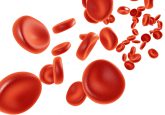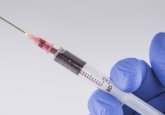Mouth guard sensor to provide real-time fitness monitoring
Noninvasive sensor for measuring saliva metabolites holds promise for fitness applications.
Researchers based at the University of California, San Diego (CA, USA) have developed a sensor in the form of a mouth guard that can measure saliva metabolites to monitor the real-time health status of the wearer. The measurement of saliva via this method is noninvasive and can provide a good indication of metabolism and hormone levels, as saliva has good correlation with blood concentrations of numerous analytes.
The research states that, “Until recently, most of the activity on wearable sensors has focused on monitoring vital signs from physical signals such as electrocardiography and pulse oximetry, while wearable chemical sensors have received limited attention.” Previous saliva chemical sensors include dental tattoos and dentures; however, this method is much less invasive.
Lactate levels have been previously screened in vitro for monitoring fitness, therefore they were also tested in this study. The screen-printed electrode, which is incorporated into the sensor, produces a current in the presence of lactate. The sensor can selectively detect lactate and is stable in saliva for up to 2 hours.
The study concludes, “Such noninvasive mouth guard metabolite biosensors could tender useful real-time information regarding a wearer’s health, performance and stress level, and thus hold considerable promise for diverse biomedical and fitness applications.”
In the future the researchers intend to “focus on miniaturization and integration of the amperometric circuits and electronics for data acquisition, processing, and wireless transmission, as well as critical assessment of all potential toxicity and biocompatibility concerns.”
Source: Kim J, Valdés-Ramírez G, Bandodkar A et al. Non-invasive mouthguard biosensor for continuous salivary monitoring of metabolites. Analyst. DOI: 10.1039/C3AN02359A (2014) (Epub ahead of print).






